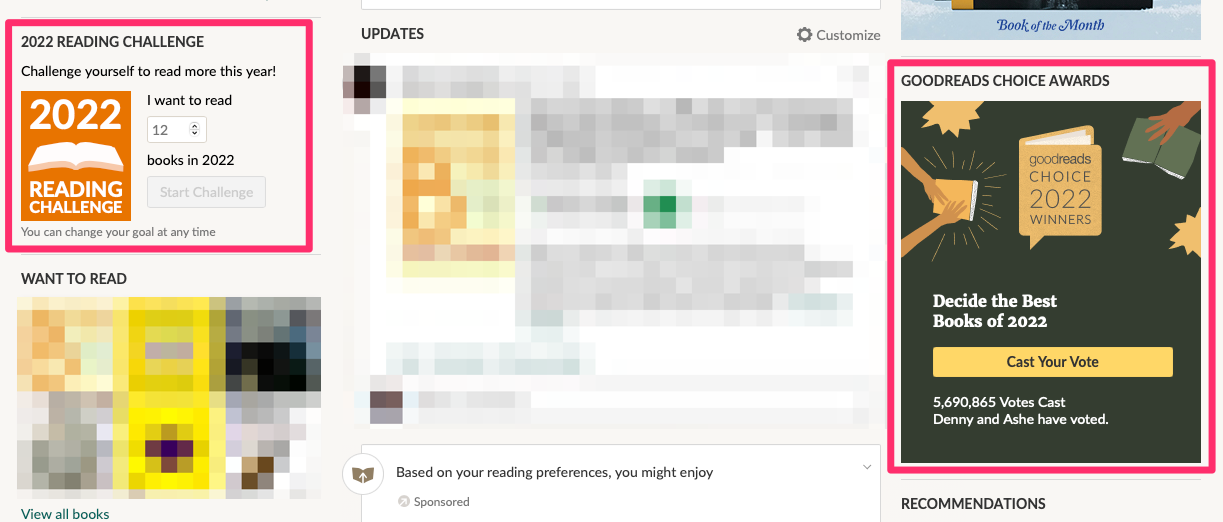Ale's little corner of the internet
New Year's Reading Challenges
Dec 04, 2022Read time: 3 min
With 2022 coming to a close, we are all getting bombarded with “year in review” type of content. As people reflect on the past year, the inevitable flip side of the coin materializes: New Year resolutions.
Goodreads (an app to track books you have read and want to read) is of course following suit and yesterday, when I logged into my account, this is what I saw.

Besides the fact that December 4th might be a touch too late to set a reading goal for the current year 😅 (come on Goodreads, you got this!), seeing this reminded me of some thoughts I have about yearly reading challenges.
The problem with quantity based consumption
First, let’s clarify something: reading is a form of content consumption. When we consume content, we typically do so because we want to either gather information, entertainment, or both.
Let’s focus on information gathering first. If learning something is the goal, then what matters is not how much we consume or how many books we read but what we can remember and apply. In other words, the most efficient way of acquiring information is by consuming the highest quality content possible. Reading challenges are useless here because they focus on quantity instead of quality.
This focus on quantity is particularly insidious because it might also make us feel falsely productive. A few years ago, I set a reading goal of a book a month for the coming year. As I read, I watched the number of completed books tick up toward my goal. This powerful psychological mechanism kept me motivated and reading. At the end of the year, I reached my reading goal. After I patted myself on the shoulder, I realized that I spent 100+ hours either reading books that weren’t that good and/or that I didn’t remember anything of what I read because I failed to actively engage with the content.
Let’s look at entertainment now. The first thing I would like to point out is that a yearly reading challenge is akin to setting yearly goals for how much TV to watch or how many video games to play. These are different examples of “goals” in the form “This year I will consume at least X of content type Y”.
There is nothing wrong of course with such goals and with setting some time aside for what makes you truly happy. Especially if, like me, you have a hard-time consuming content for entertainment only. Yet, just because people tend to spend more time watching TV and gaming, that doesn’t make reading goals something desirable by contrast.
Avoiding the pitfalls
If you are thinking about doing a reading challenge next year (or setting a content consumption goal) ask yourself why. Is it education, entertainment, or both? Digging into the why might help you discover that your reading challenge was in service of something else you want to do. If that’s the case, consider switching to Just-in-Time/ad-hoc content consumption whenever possible. Also, try to consume the highest-quality content possible.
If you are consuming content for entertainment, consider the fact that we tend to consume way more content than we think. A consumption goal might not be necessary. If you want to invest more time reading instead of gaming/watching TV, make sure you phrase your goal precisely. Consider using a time-based instead of a quantity-based approach (e.g. “I will watch one less hour of TV every day and use that hour for reading instead”).